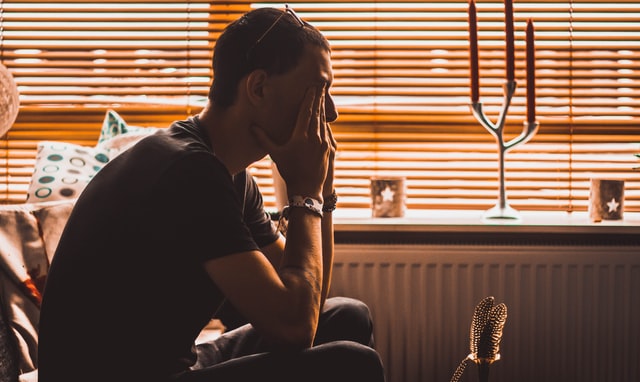We offer medical detox and multiple addiction treatment options in our
luxury treatment centres in Port Hope, Cobourg, and Ottawa.
Alcohol Relapse: What is the Kindling Effect?
Alcohol is one of the world’s most widely abused substances and is responsible for 5.1% of the global disease burden. About 4.2% of Canadians are addicted to alcohol or have serious problems related to alcohol abuse. Quitting alcohol abuse is not as easy as deciding not to drink again. Alcohol addiction is a disease that requires customized, expert intervention and rehabilitation for a full recovery.
Without a patient-oriented professional approach, a recovering alcohol addict will suffer terrible withdrawal symptoms and likely relapse into old habits. A relapse from alcohol addiction recovery has severe negative impacts on the brain, and each successive relapse worsens the addiction’s severity. This phenomenon is known as the “kindling effect.” Our guide answers the question of what is kindling and explains how to get help from the kindling effect.
Key Takeaways
- The kindling effect occurs due to changes in the brain due to multiple relapses by a person trying to quit drugs or alcohol.
- Kindling causes progressively worsening withdrawal symptoms each time there is a relapse.
- There is no cure for kindling, and treatment strategies focus on symptom management and relapse prevention.
How Does the Kindling Effect Work?
When a person addicted to alcohol tries to stop or cut back on their alcohol use, their body responds with mild to severe withdrawal symptoms depending on the severity of their addiction. Withdrawal symptoms occur because the brain is trying to return to a state where it does not require alcohol for normal functioning. These symptoms typically begin 12 to 48 hours after withdrawal and may include:
- Intense craving to drink
- Restlessness and agitation
- Insomnia
- Anxiety and depression
- Seizures and tremors
- Hallucinations
The discomfort and pain associated with these symptoms can cause the individual to relapse and start the cycle of alcohol abuse again. Each time a person tries to stop alcohol use and relapses, they risk developing alcohol kindling.
The kindling effect was first described in 1967 by Graham Goddard, a neuroscientist who electrically stimulated rats to observe their learning process. As he continued to apply electrical stimuli to the rats’ brains each day, he discovered that they began to develop seizures in response to other stimuli that would typically be insufficient to trigger convulsion. Goddard called this effect “kindling”, as he had essentially kindled seizures in rats.
The kindling effect has since been applied to many conditions with mild symptoms which become heightened with time.
Like the rats in Goddard’s experiment, people experiencing alcohol withdrawal symptoms experience the same trauma of repeated brain stimulation. With time, the brain becomes more sensitive to alcohol abuse, and this pattern triggers the kindling effect, where alcohol withdrawal becomes harder to achieve due to intensifying withdrawal symptoms.
Why Is It Important to Know What the Kindling Effect is?
Knowing and understanding the kindling effect is important because of its implications for addiction recovery and treatment. The increased severity of symptoms makes alcohol withdrawal difficult and each relapse more challenging. It becomes harder to resist relapse after a period of abstinence.
The prospect of kindling also makes effective alcohol addiction treatment more crucial. Ideally, treatment should focus on handling the addiction’s root causes rather than its symptoms. Kindling also makes medical supervision necessary when trying to quit alcohol. Experts need to monitor the individual and help them cope with withdrawal symptoms.
Why Does the Kindling Effect Happen?
The kindling effect in the human brain occurs due to changes in the central nervous system from chronic alcohol use. When a person consumes large amounts of alcohol or gets drunk, alcohol activates gamma-aminobutyric acid (GABA) and other brain chemicals, which slow down the brain.
Heavy alcohol use changes the brain and causes it to depend on alcohol for normal function. When a chronic alcohol user tries to stop using abruptly, a sudden reduction in GABA production makes the brain unable to balance its chemistry. Withdrawal symptoms result as the brain tries to balance its equilibrium. Without medical help, the individual may find the symptoms intolerable and relapse. Falling back into alcohol abuse multiple times after periods of abstinence is what causes the kindling effect.
To avoid kindling, it’s vital to get medical help to safely stop using alcohol and enter a rehab program to learn ways of modifying one’s behavior around alcohol and other triggers.
Are you or your loved one struggling with substance abuse? Call 1-855-499-9446 now and get the help you or your loved one needs, or request a call, and we will take care of the rest.
What Substances Can Cause the Kindling Effect?
The kindling effect occurs due to neurochemical changes in the brain. Besides alcohol, benzodiazepines may also cause kindling in some individuals. Mental health conditions like depression and bipolar disorder may also present manifestations of the kindling phenomenon, where episodes become increasingly severe and last longer.
Substances with the potential to cause dependence and addiction that may cause kindling include:
- Alcohol
- Benzodiazepines
- Cannabinoids
- Barbiturates
- Amphetamines
- Cocaine
Who is Most at Risk of Going through the Kindling Effect?
Kindling affects people differently, and some people may not experience it at all. Individuals in a cycle of withdrawal and relapse are at the highest risk of experiencing the kindling effect. The cycle of using a substance and stopping subsequently makes it difficult for a person to avoid severe withdrawal symptoms. As the cycle continues, the individual is likely to progress to more aggressive substance use making the symptoms of kindling more severe.
Risk factors for multiple withdrawals leading to kindling include:
- Mental health conditions
- Stress
- Boredom
- Emotional difficulties
- Family issues
What are the Effects of Kindling?
Kindling increases a person’s sensitivity to the symptoms of alcohol withdrawal. The condition takes an individual through varying phases of emotional, psychological, and physical discomfort. Negative emotional changes that may occur at the initial stages of kindling include:
- Anxiety and panic attacks
- Depression
- Insomnia
- Fatigue, weakness, malaise
- Mood swings
Without medical supervision, the severity of these symptoms can trigger a relapse. If the person continues in the withdrawal and relapse cycle, the symptoms may progress to the more severe and even life-threatening delirium tremens.
Delirium tremens is a severe form of alcohol withdrawal due to sudden and severe nervous system changes. It causes an altered mental status and autonomic overdrive, and if not managed, can progress to cardiovascular collapse. The symptoms of delirium tremens occur between seven to ten days after the last drink and include:
- Sudden confusion or delirium
- Generalized tremors
- Fever
- Chest pains
- Irritability, agitation, or overexcitement
- Fear and anxiety
- Increased sensitivity to light, sound, and other stimuli
- Insomnia or oversleeping
- Nausea, vomiting, and loss of appetite
Repeated attempts to quit alcohol may also lead to seizures which can be life-threatening without medical help.
Overcoming the Kindling Effect
The safest way of overcoming the kindling effect is to seek medical help before stopping alcohol use, especially if you have previously been in the cycle of withdrawal and relapse. During detox, a doctor will prescribe drugs that affect GABA receptors to minimize the effect of withdrawal symptoms.
If the brain has been altered by heavy and prolonged alcohol use, it may take a while to return to normal, even after detox. The individual will still experience cravings that can lead to relapse even when their brain no longer depends on alcohol. Inpatient rehabilitation may be necessary for individuals who cannot escape the withdrawal and relapse cycle after multiple attempts to quit.
How Can Someone Avoid Kindling Effects
The kindling effect occurs due to multiple relapses, and you can avoid the effect by preventing relapses. However, this is easier said than done, as alcohol addiction has a high relapse rate, especially in individuals –-who try to become sober without help. However, professional treatment tailored to personal needs with support from friends and family can help a person maintain their new-found sobriety.
Another way to avoid kindling is to treat a relapse immediately after it occurs to prevent the symptoms from worsening. A relapse can occur after many years of clean living, so people in recovery need to be able to access treatment throughout their lifetime.
Can the Kindling Effect Be Treated?
There is no cure for the kindling effect; treatment revolves around preventing relapse and managing withdrawal symptoms. Medical detox is necessary to minimize the risk of neurological issues that may arise from the addiction and improve the chances of achieving lasting sobriety.
The aim of kindling treatment is to keep the recovering addict safe and comfortable during the process. Treatment will typically include medication and therapy to manage depression and anxiety. In severe cases, doctors may also prescribe anticonvulsants for seizure prevention.
Getting Help for Addiction and the Kindling Effect
Recovering from addiction and the kindling effect is usually challenging, and you need all the help you can get. Quitting alcohol cold turkey is possible, but it can be dangerous and also increases the chances of relapse. Addiction help will require a multidimensional approach, and finding a quality rehab center offers the best chances of complete recovery.
If you or a loved one needs help with addictions and kindling, you should contact the Canadian Centre for Addictions. We help people understand addictions and the healthier coping strategies available by engaging them in one-on-one counseling with certified counselors, psychiatrists, and mental health professionals.
Conclusion
No one ever intends to become addicted to a substance, and many addicts find themselves trapped in a cycle of withdrawal and relapse. Fortunately, anyone can recover from addiction with the right treatment and commitment to recovery.
If you or a loved one is struggling with addiction and kindling effects, it’s best to seek help immediately and begin the journey to complete healing by calling 1-855-499-9446 or request a call.
Frequently Asked Questions
Yes, the kindling effect is real and occurs when a person struggling with alcohol or drug addiction quits and relapses multiple times. It is a progressive worsening of withdrawal symptoms each time the addict attempts to quit as the body becomes more sensitive to neurotransmitter changes in the brain.
The kindling effect does not go away as it is due to a permanent change in the brain’s sensitivity to stimulation with alcohol or drugs. However, effective management of withdrawal symptoms and relapse prevention strategies will take care of kindling effects.
You know you have kindling if you are in a cycle of alcohol or drug withdrawal and relapse with progressively worsening withdrawal symptoms. Kindling comes with symptoms like anxiety, depression, insomnia, fatigue, and mood swings that become worse with every relapse.
Kindling permanently changes the brain’s sensitivity to stimuli with each withdrawal and relapse. However, relapse prevention strategies and withdrawal symptom management can reverse the effects of kindling.
Kindling occurs when a person who is addicted to alcohol or drugs tries to quit and suffers a relapse. The withdrawal symptoms due to kindling effects will progressively worsen due to changes in the brain’s sensitivity to alcohol and drug stimulation.
Sources used for the article
- https://www.who.int/news-room/fact-sheets/detail/alcohol
- https://familyoutreachontario.com/statistics-about-alcohol-abuse/
- https://www.ncbi.nlm.nih.gov/pmc/articles/PMC1976118/
- https://www.ncbi.nlm.nih.gov/pmc/articles/PMC6761822/
- https://www.sciencedirect.com/topics/neuroscience/kindling
- https://www.benzoinfo.com/kindling/






